Roy Chan and the what’s and the how’s of his clinical psychology practice
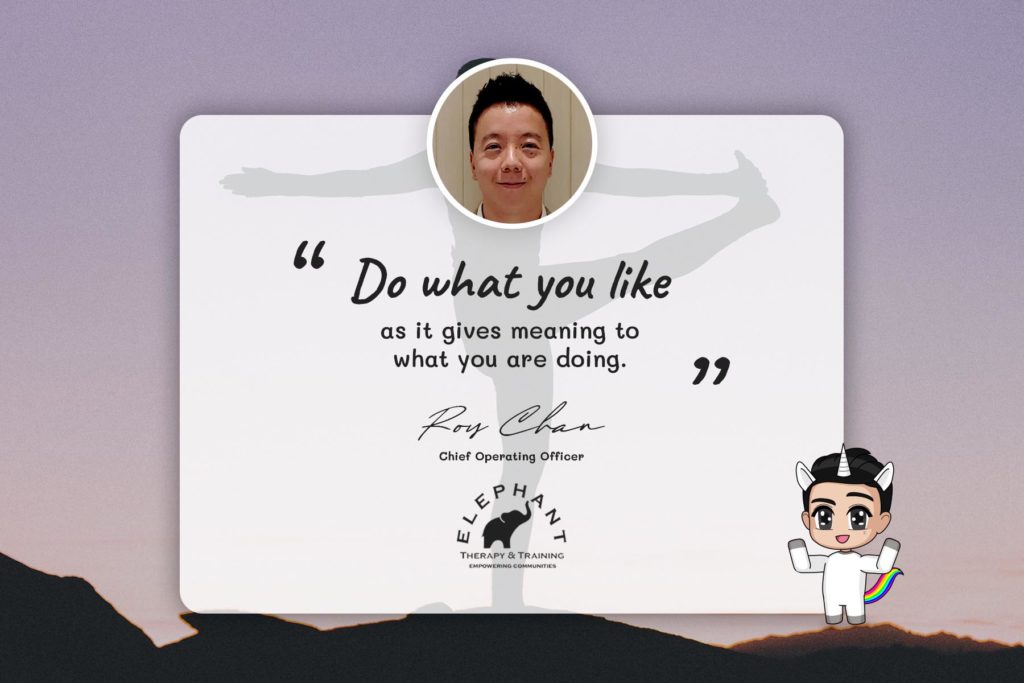
In today’s Entrepreneur Series, we are very proud to have Dr Roy Chan. Roy is a clinical psychologist and chief operating officer at Elephant Therapy and Training located at Club Street. He specialises in psychotherapy for love, sex, relationship and anger management issues.
Most of us run on auto-pilot when it comes to living our lives, and when things don’t go smoothly no matter how we try, we get stuck. Going to a professional who will work with us on our blind spots and help us unleash our inner strength will be the thing that will take us to the next level. Dr Roy Chan helps people work on their issues and relationship problems at its source, at its core. Take this opportunity to know his knowledge and thoughts. I think everyone will find his answers interesting. Read on!
Q: What is “empowerment” to you?
A: The ability to behave and feel, for doing both the alternative and the mundane, without fear of judgement.
Q: Tell us something true but nobody agrees with you.
A: People should feel free to wear speedos at the beach/pool without fear of being compared to other men, in terms of size.
Q: When did you get your first paid employment, and how old were you? What was it, exactly?
A: I was a part-time inline skating instructor when I was 16. I performed tricks and taught skating to people of different ages and walks of life. It taught me how to perform in public, understand fear and hesitation, and help people when they are in need.
Q: Tell us a little bit more about your journey.
A: When I was a child, a member of my family had learning difficulties and went for a psychological assessment to get diagnosed. That was when I first encountered the work of a psychologist and became interested in it. In university, I could not decide between doing psychology or doing advertising as I was enthralled by the ads shown during the World Cup. So, I took both Psychology and Communications. After my bachelor’s, I very much preferred to work with the human psyche and decided to pursue psychology. I proceeded to go to a psychology-related job and eventually graduate school to do my Doctorate in Clinical Psychology to become a clinical psychologist.
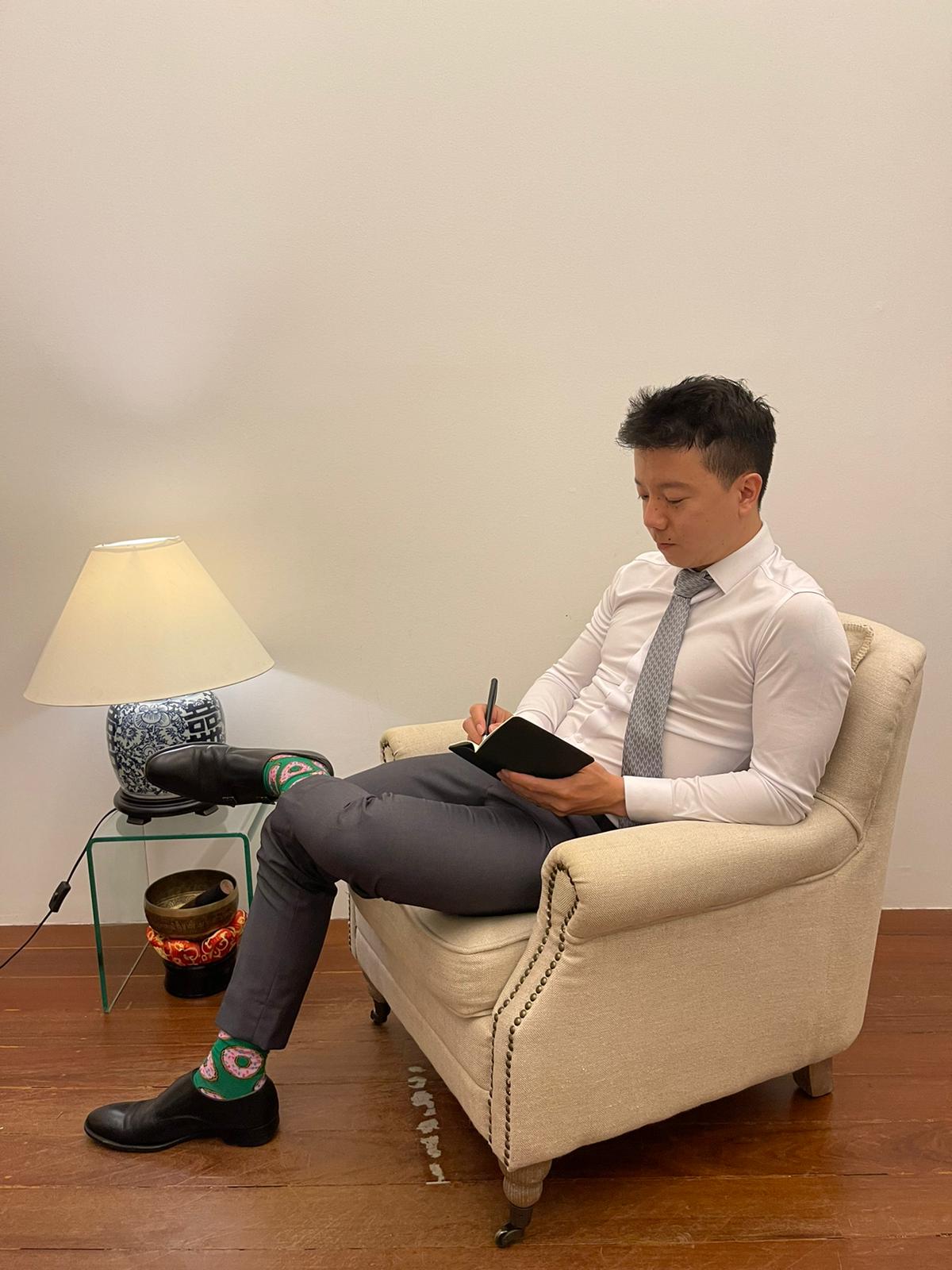
Q: Let’s talk about your current occupation or business. What do you do?
A: I am a doctoral-level clinical psychologist in private practice at Elephant Therapy and Training and I do psychotherapy. I work on love, sex and relationships. I also work on anger management. I help my clients understand how their underlying thoughts and relational patterns hold influence over their current situation, intending to guide them back to balanced mental states.
Q: How did you come up with this concept and carry it out?
A: Based on my psychodynamic training, I learnt about the powerful influence of our unconscious thoughts. I was very interested in the unconscious, and did a lot of training and reading on it. I felt that this is a niche area that I excel in, and I have the principles to ethically work with. I believe in my craft, trust my ability to guide my clients and trust the abilities within my clients to find peace.
Q: What about your line of work excites you the most?
A: Talking about sex and relationships, and uncovering the underlying drives, repressed urges, and unmet needs behind the sexual fantasies and relationships of my clients. Helping my clients understand how sexual behaviours are a physical manifestation of patterns that are already present, or absent in their relationships.
Q: What has been your most challenging obstacle, and how did you overcome it?
A: Working with clients with a diminished capacity to love and to feel love. Through psychotherapy, I worked on building autonomy, independence, boundaries, validation and the ability to love ourselves, to show that we can love if we feel sufficiently satisfied and comforted.
Q: What motivates you to go further in your business or career?
A: Looking around at relationships that are around me, especially the failed or hurt relationships and feeling that I can do more to help.
Q: What do you consider to be the most valuable talents you’ve acquired and implemented during your journey?
A: Analysing a situation with both their conscious and unconscious influences, very quickly conceptualising multiple interpretations on what the issue might be while determining the pace to which I would work with a client. Reading extensively and scepticism unless proven otherwise.
Q: What is the most significant mentality shift, belief shift, or “ah-ha” moment you’ve had in your business?
A: During a psychodynamic training a few years ago, the late Dr Ronald Teague, introduced me to this quote “Bonus Intra. Melior Exi” which means “Come in as a good person. Leave as an even better person”. This quote was inscribed on the doorways of sanctuaries where people went to be healed in ancient times. This changed my mind that my work is to fix people and their issues. Instead, it guided me that my work is actually to help my clients uncover the abilities already available within themselves and trust in their potential to find peace.
Q: What would you do differently if you could go back in time and do things differently knowing what you know now?
A: I am here today because of the decisions I made and the people that I chose to talk to. I chose different experiences that I was told by others not to, but these are the experiences that allow me to understand the broad range of concerns that my clients bring, and they keep my mind open in the work that I do in love, sex and relationships. So no, I would not change a thing, as they made me who I am, and I am happy.
Q: What attributes do you believe are the most necessary for a successful entrepreneur?
A; To have a supportive spouse or partner who is supportive of who you are and loves you for who you are and not your achievements. This stability allows us to have the courage to try, explore, strive and eventually thrive.
Q: What are some of the most crucial aspects of establishing a successful company?
A: Ensuring that everyone feels heard, respected, and cared for. People need to feel that they matter.
Q: What is the best piece of advice you have ever gotten?
A: Do what you like as it gives meaning to what you are doing. Don’t do what you love or you might lose the enjoyment that you have for it.
Q: What have you recently discovered that has astounded you?
A: The difficulty that some people have in finding meaning in life other than through work.
Q: What advice do you have for aspiring and first-time entrepreneurs?
A: Only go into it if it is something that you truly believe in, not because others believe in it.
Q: How can a lack of cash be overcome while beginning a business?
A: Gather enough savings before you start so that you can tide through the building up phase.
Q: What is one question you wish we had asked you? What would your response be to such a question?
A: What makes you happy? My response would be the fulfilment that I am on a journey with my clients to bring into awareness, areas or patterns that they have not considered before, and find balance in it.
Q: Life has its ups and downs; can you tell us a compelling story?
A: I think that every story is compelling in itself. It is not a competition to be outstanding. If that is so, we would lose the full experience of being human. For me, even the mundane is compelling and is worthy of a story.
Q: Who motivates or motivates you?
A: I motivate myself to constantly improve my craft.
Q: What are your favourite ways to unwind?
A: Talisker single malt whiskey from the Isle of Skye. I enjoy the smokiness and complexity as it is drunk neat, just like the work I do. Espressos. Working out and Rollerblading. Going to the beach.
Q: This is a book that every business person should read:
A: The Wisdom of Psychopaths
Q: What would you do if you were to commit a crime? What would you have done and how would you have gotten away with it?
A: I have faith in my code of ethics.
Q: What is the most amusing event that has recently happened to you?
A: Finally finding someone who can speak fluent Cantonese in Singapore.
Q: Describe the colour pink to a blind person.
A: It’s the colour of exuberance.
Q: What would you do if you found yourself on a (potentially) deserted island as a single survivor?
A: Search for some friends. We all have the need for attachment.
Q: How would you choose which emails to answer if you woke up with 1,000 unread emails and only had time to respond to 100 of them?
A: I would respond to the ones from my clients. The rest can wait.
Q: How much would you be willing to pay for a machine that could produce 100 dollars every day for the rest of your life?
A: Nothing. I don’t want that machine. I am happy with what I have.
Q: How fortunate are you, and why are you so fortunate?
A: Quite. I have people who love me and I love myself.
Q: What would you play if you could only play one song every time you walked into a room for the rest of your life?
A: Silence. This allows me to stay with my thoughts.
Connect with Roy Chan and share your takeaways from this interview down below.
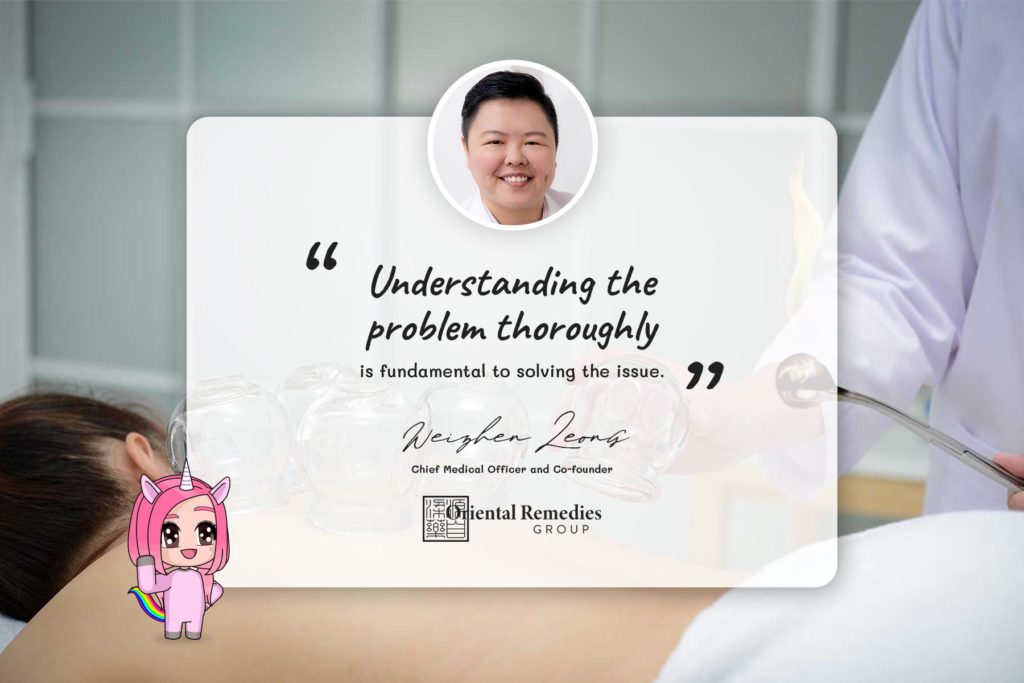
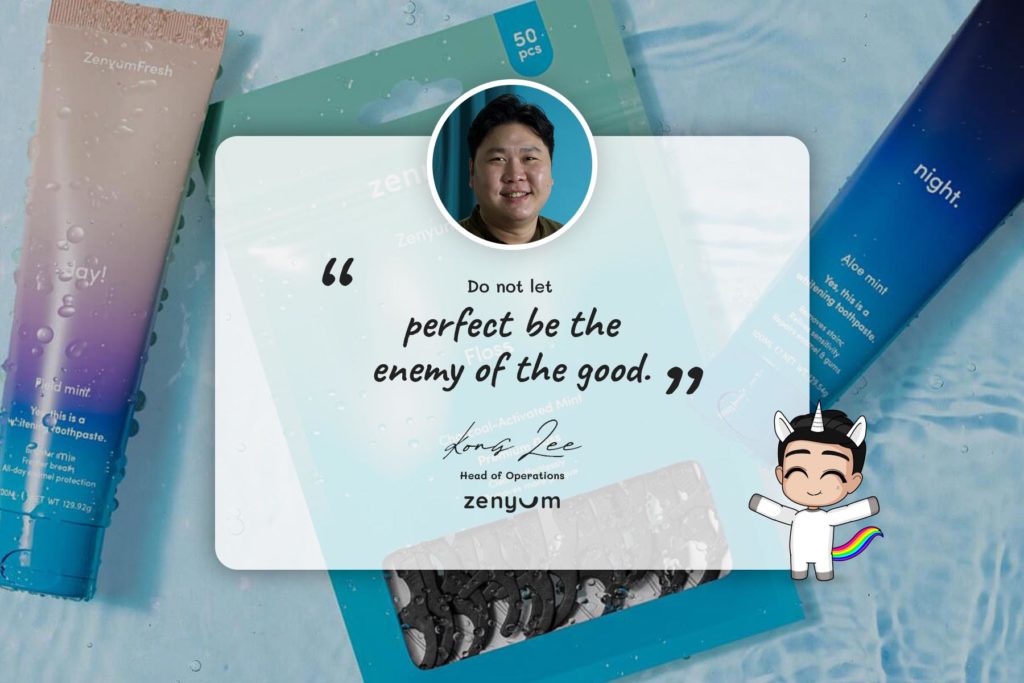
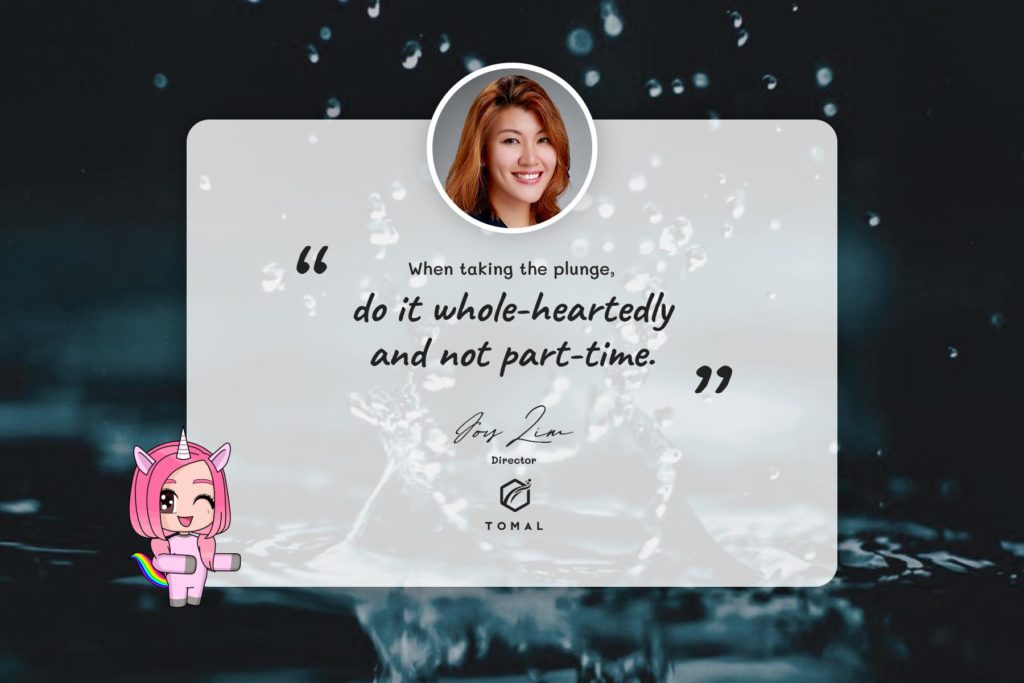
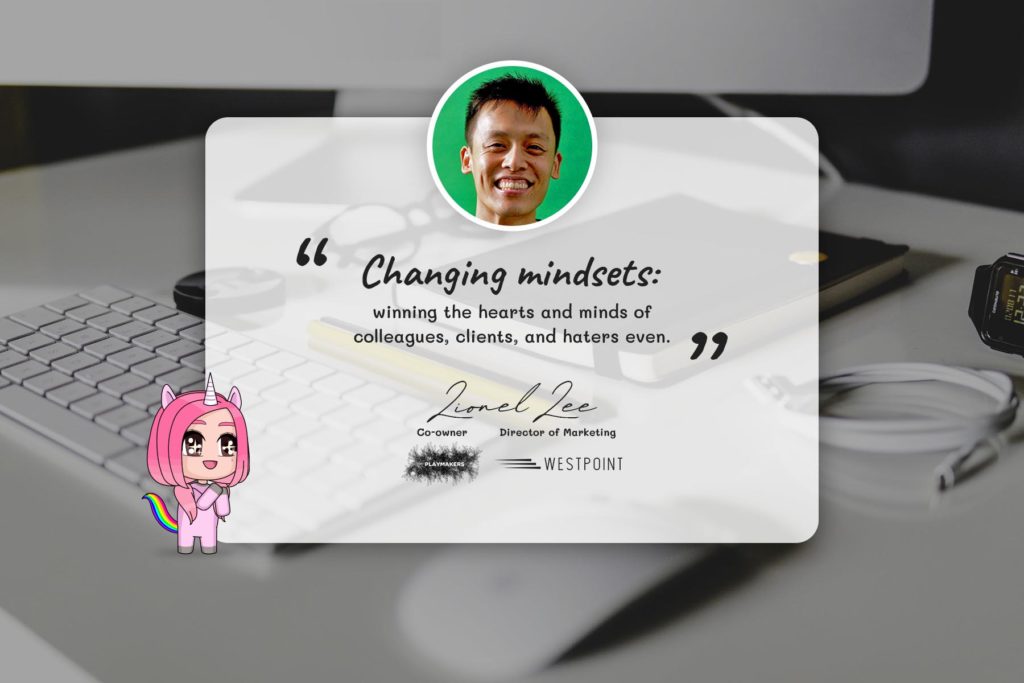
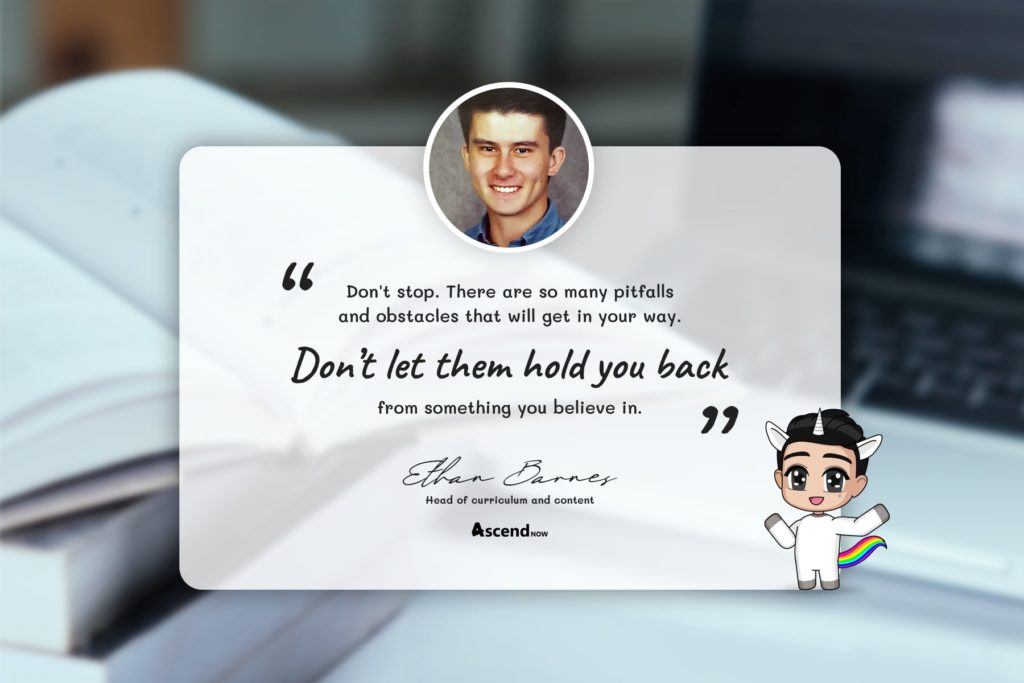
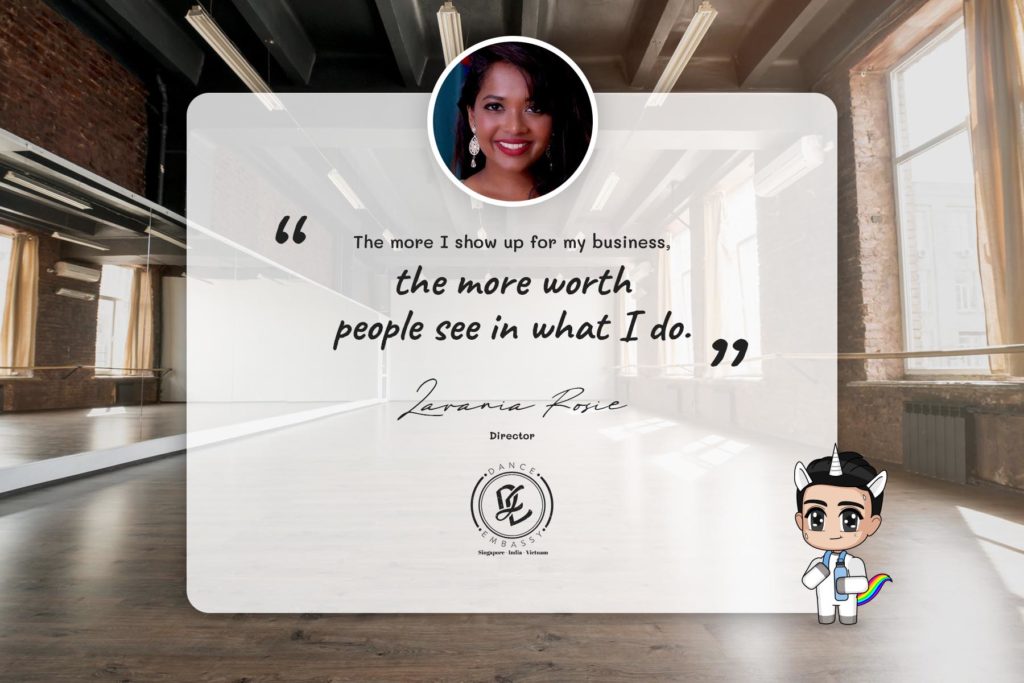
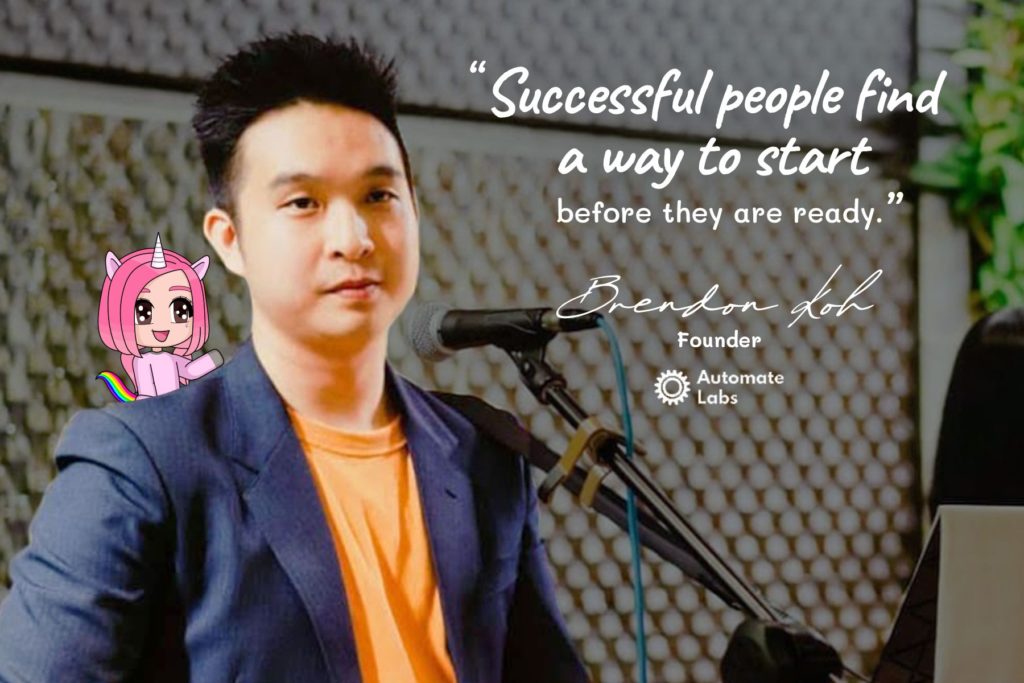
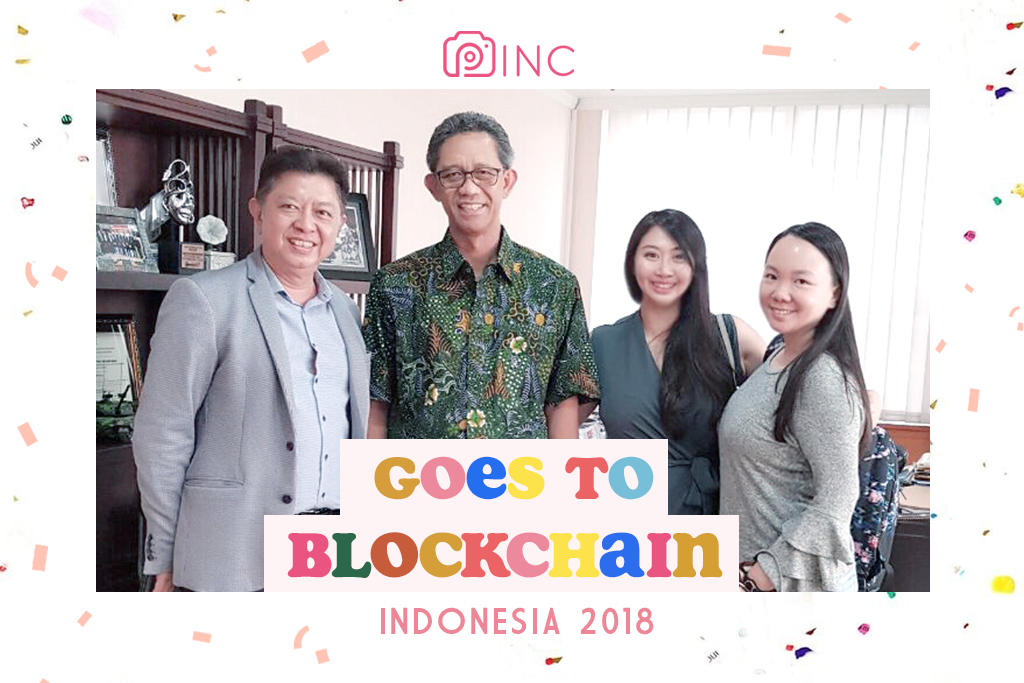
Responses